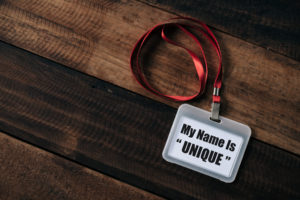By Dr Jane Bryan, solicitor (non-practising), Reader in the Warwick Law School
Many students find that names play a large part in their education: tortured hours spent trying to cement case names to facts and principles, the strategic peppering of essays with the names of academics and theorists in the hope of impressing others with their well-judged, in-depth research. Yet many find that far less attention is paid to getting right the names of people in the class.
Research conducted at the University of Warwick, with over 800 staff and student participants, found many spend years working and studying at University with a name they do not consider their own, either because they feel compelled to adapt their name or adopt a new name to ’fit in’, or because their name is routinely mispronounced or avoided. In some instances, insensitivity over names amounts to micro-aggressions or even instances of racism, transphobia or other harassment, for example, ‘dead-naming’ trans staff and students by continuing to use their past names.
How to manage uncertainty over name pronunciations is rarely discussed and yet in a diverse learning environment we will all regularly encounter names with which we are unfamiliar. Not addressing the uncertainty however keeps in place barriers to communication, engagement and learning, and risks undermining attempts to create an inclusive, culturally sensitive teaching space.
Whilst many Law students and lawyers pride themselves on accurate recall of case names, it is common to find little care being taken over getting names right in workplaces and classrooms or a lack of concern for creating a culture where everyone is encouraged to use names they genuinely prefer, rather than names that are more convenient for others. Whilst it is common for those with names that many find unfamiliar to offer shortened or anglicised versions, the majority of our research participants who had changed their names to ease interactions, reported that they would prefer to use their given name and that changing or adapting their name often felt like a betrayal of a part of themselves, their families, and their heritage.
Our research showed widespread desire to remember and correctly pronounce the names of others but most struggled to know how to do that in a way that was respectful. The advice from those with names many find unfamiliar was clear: it is better to try to pronounce a name than to avoid it, and it is better to ask (as many times as needed) how to pronounce someone’s name than to routinely mispronounce it. Other suggestions include:
- Be guided by the name-bearer as to how they would like to be addressed and how their name is pronounced. Pay attention to how they introduce themselves or sign an email and follow this.
- Avoid characterising a name as ‘tricky’ or ‘difficult’ – it is neither of these to the name-bearer. Do not joke or comment on names – they are a part of someone’s identity and should be respected as such.
- Care about getting names right: Research shows that brains ‘light up’ when someone hears their own name, while mispronunciation can feel alienating. Tools such as NameShouts and NameCoach can help, as can more simple solutions like creating a space for people to introduce themselves. If you are in a position of influence, getting the pronunciation of names correct is even more important because others may be reluctant to correct you and will follow your lead.
- Prepare ahead: our research found that people appreciated efforts to anticipate situations by checking pronunciation in advance, with the name-bearer if possible, with others or websites such as NameShouts (do check accuracy with the name-bearer themselves).
- Create a culture where names are respected: normalise the use of audio name badges and pronunciation guides in email signatures and profiles (these can be easily created for free using NameCoach) and include the importance of names in Equality, Diversity and Inclusion training.
- Take a moment to check spellings: our research found errors are less forgivable and often cause practical problems if made in official documents.
- The longer a name is mispronounced, the harder it is to change that. If you hear someone’s name being shortened or mispronounced when they are not there, offer some help: ‘I think the “h” is silent in their name.’ ‘Are you talking about Joseph? He doesn’t go by “Joe”.’
By making small changes, our institutions – indeed society more generally – can adjust so that unfamiliar names are embraced rather than avoided and everyone feels respected, seen and acknowledged by the use of their chosen name.
More information about the Say My Name project.
Dr Jane Bryan is a solicitor (non-practising), Reader in the Warwick Law School and Lead of the University of Warwick Community Values Education Programme (CVEP). She is the project lead of the Say My Name research, working with Puja Laporte, CVEP Programme Manager, University of Warwick whose input has been invaluable.


